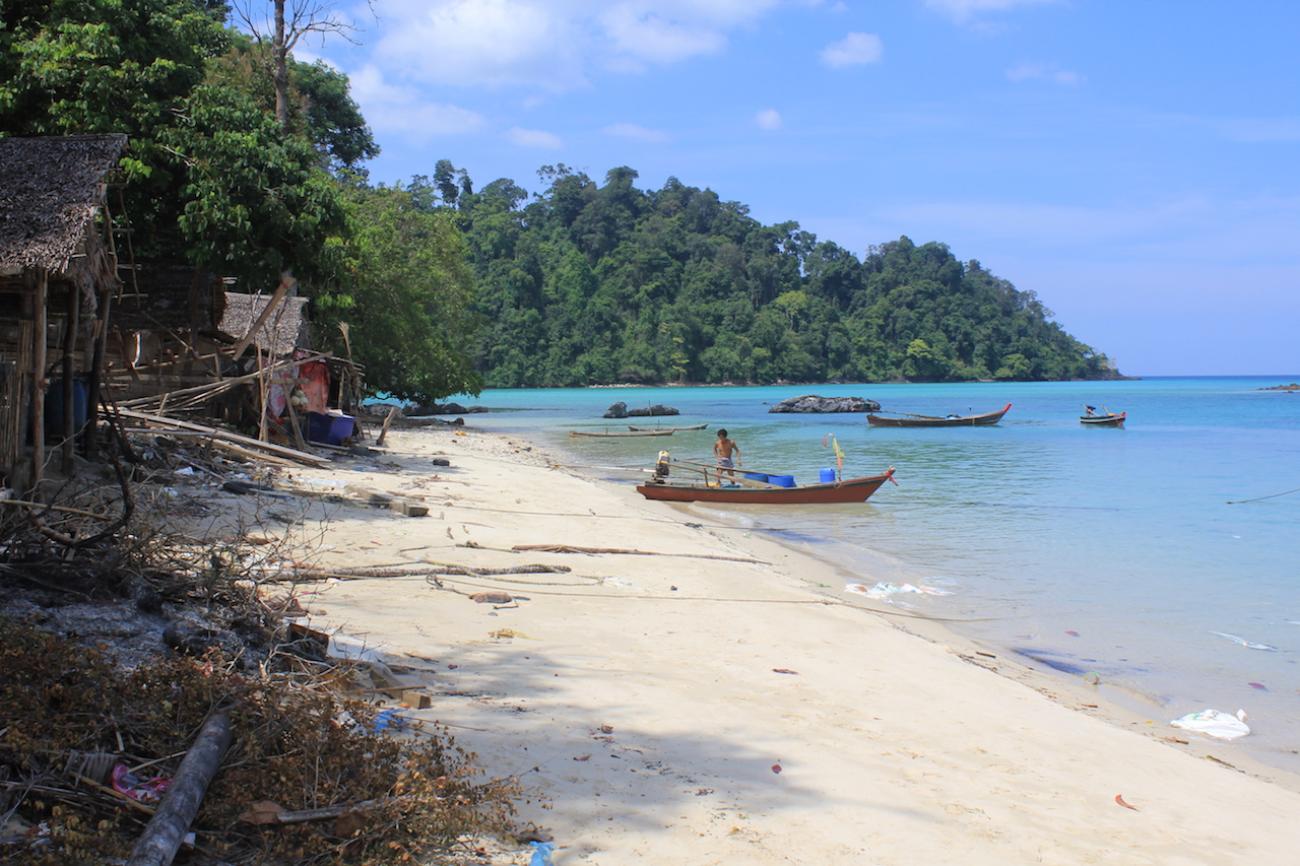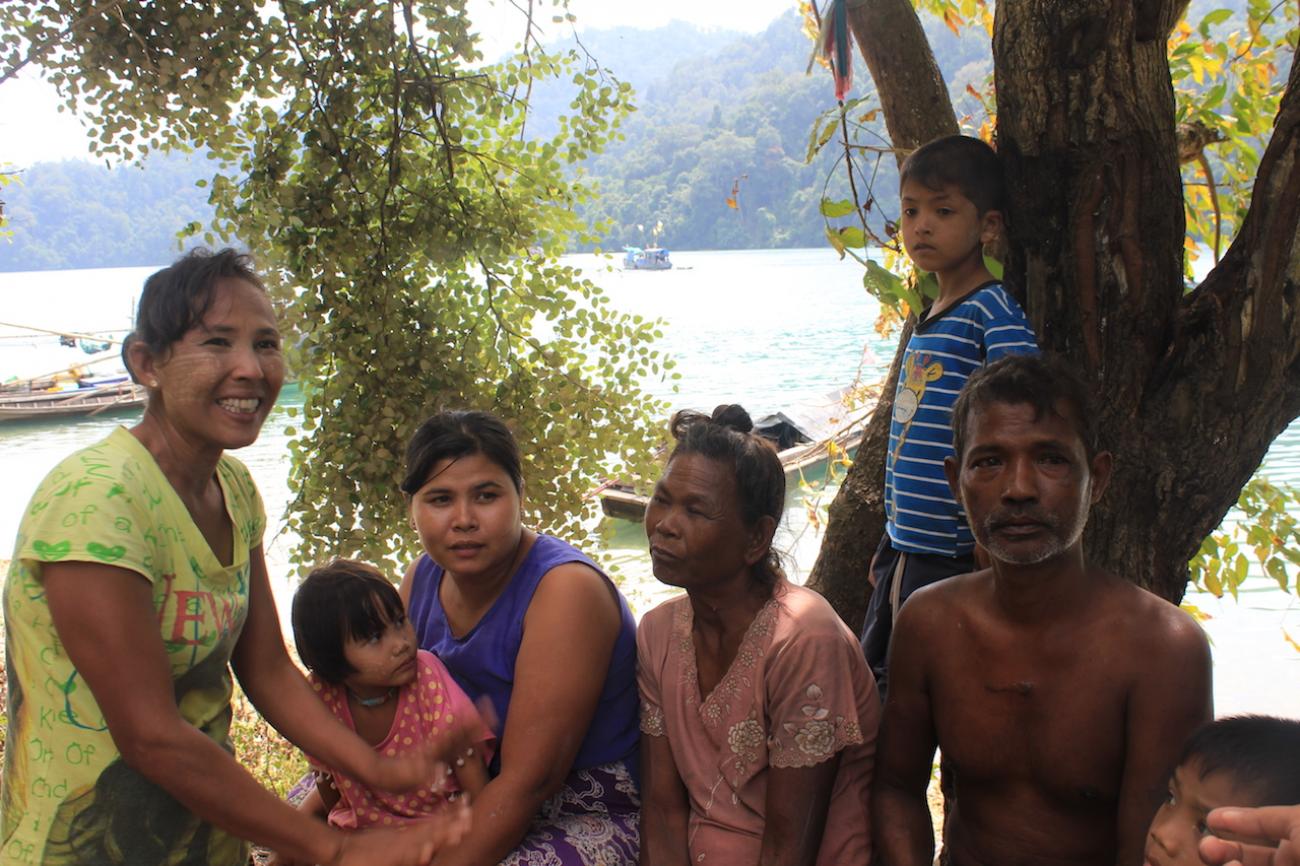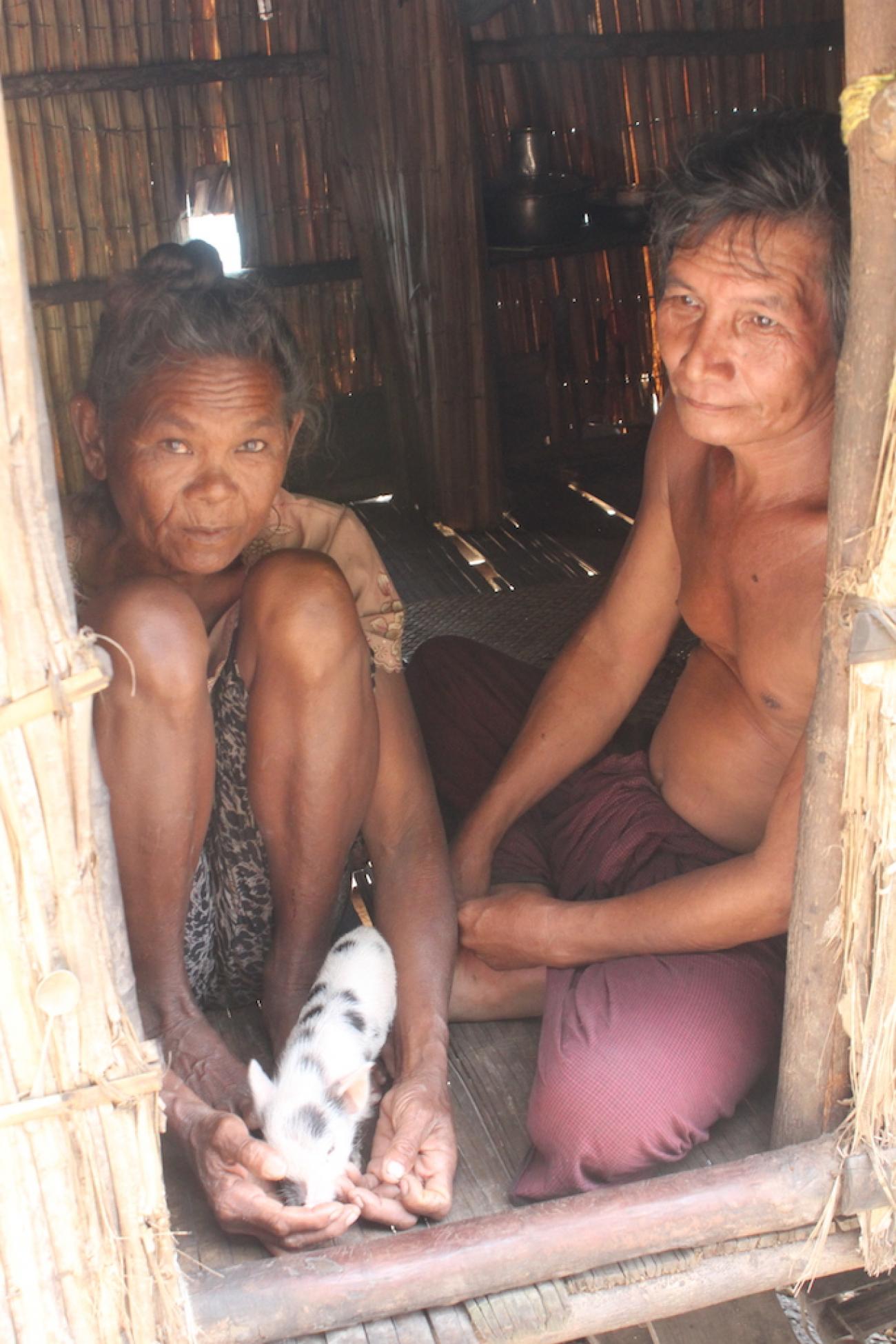Mark Steadman, recently voted Wanderlust's Best Guide in the World, has just returning from leading our new group tour The Sea Gypsies of Burma on Burma's islands of the Andaman Sea. Here he spends time with the Moken people who, he discovers, have no word for worry. Hakuna Matata?
The lines on Majula’s face tell the story of her people. Majua is an elderly Moken lady; a ‘Sea Gypsy’. For hundreds of years her people have lived a free spirited water bound life, roaming the waves for nine months at a time - until the discovery of oil and tourism development. Now that nomadic way of life hangs in the balance in the island-dappled waters of the Andaman Sea. Moken people are being forcibly settled, assimilated into traditional Burmese villages - or worse still moved into militarized camps. It’s an unfortunate consequence of the recent ‘opening up’ of Burma.

It’s important that we, as travellers, learn and inform others about the places we visit. Ironically, in Moken language there is no word for ‘worry’.
We had moored off Salat Galat, a small island home to 40 families, four of which are recently ‘settled’ Moken. Walking around the friendly village with we came across Majua and her brother Aung Badan, a squid fisherman, sitting among villagers and children with their backs to the sea. They seemed happy to talk.

I felt slightly uneasy with the attention we are unwittingly giving her, so I decided to start a conversation, joking that I wanted to build a kabang, the traditional Moken boat, crafted from a single tree. ‘Where can we find a tree?’ ‘Can we chop it down?’ She tells me, knowledgeably, that there are few kabangs left these days - and the Burmese authorities don’t let Moken cut the trees.
Majula’s husband, Ko Ko Ka, joins us. Together they collect sea urchins and small shells that they exchange for rice. Their son passed away years ago. Sometimes Ko Ko Ka dives for sea cucumbers to sell in Kawthaung, where our cruise ends. A bucket of sea cucumbers fetches $10; a tiny plate will cost ten times that amount in Kuala Lumpur or Beijing.
Majula is deaf, so a convoluted chain of translation developed from English to Burmese to sign language - and back again. The delays only made me realise the uniqueness of this experience. ‘Unique’ is an overused word - but for this encounter it’s perfect. For me it’s what travel is all about – and worth ten of those wonderful Shwedagon sunsets.

As the group wandered back to the boat, I returned with some light blankets, mosquito coils, tiger balm and candles from village packs we prepared to support places we visit. I found the couple together in their small wooden hut, with a small cooking space at the side. Their dwelling offered just enough room for their slender frames, and their pet pig.
I left silently with just a smile. Moken have no word for word for ‘goodbye’ in their language.
For more information about Moken people watch the Project Moken movie trailer ‘No Word for Worry’
Or visit the website of Burma Boating Sailing Clinic, an organisation we encourage our clients to support.
